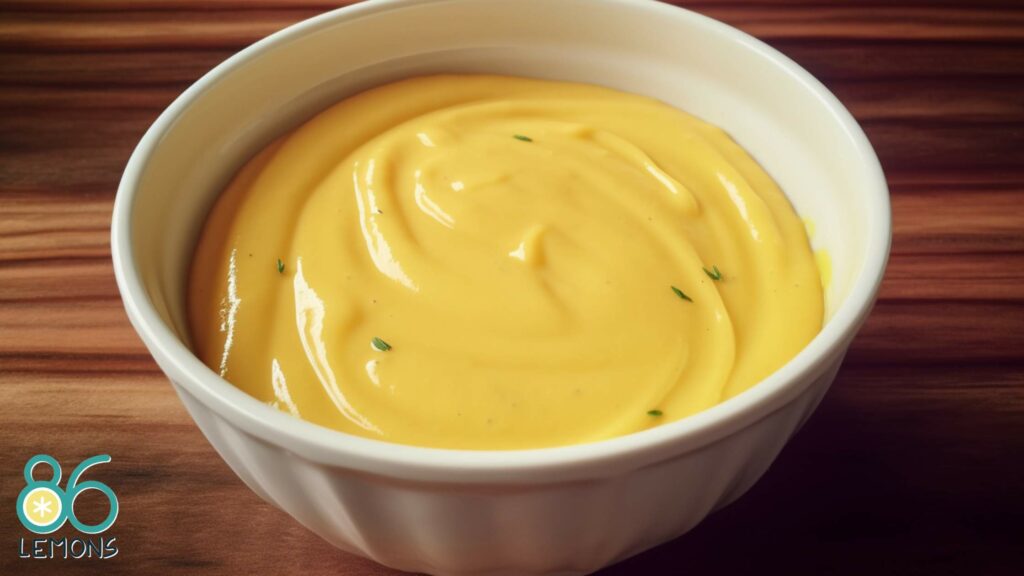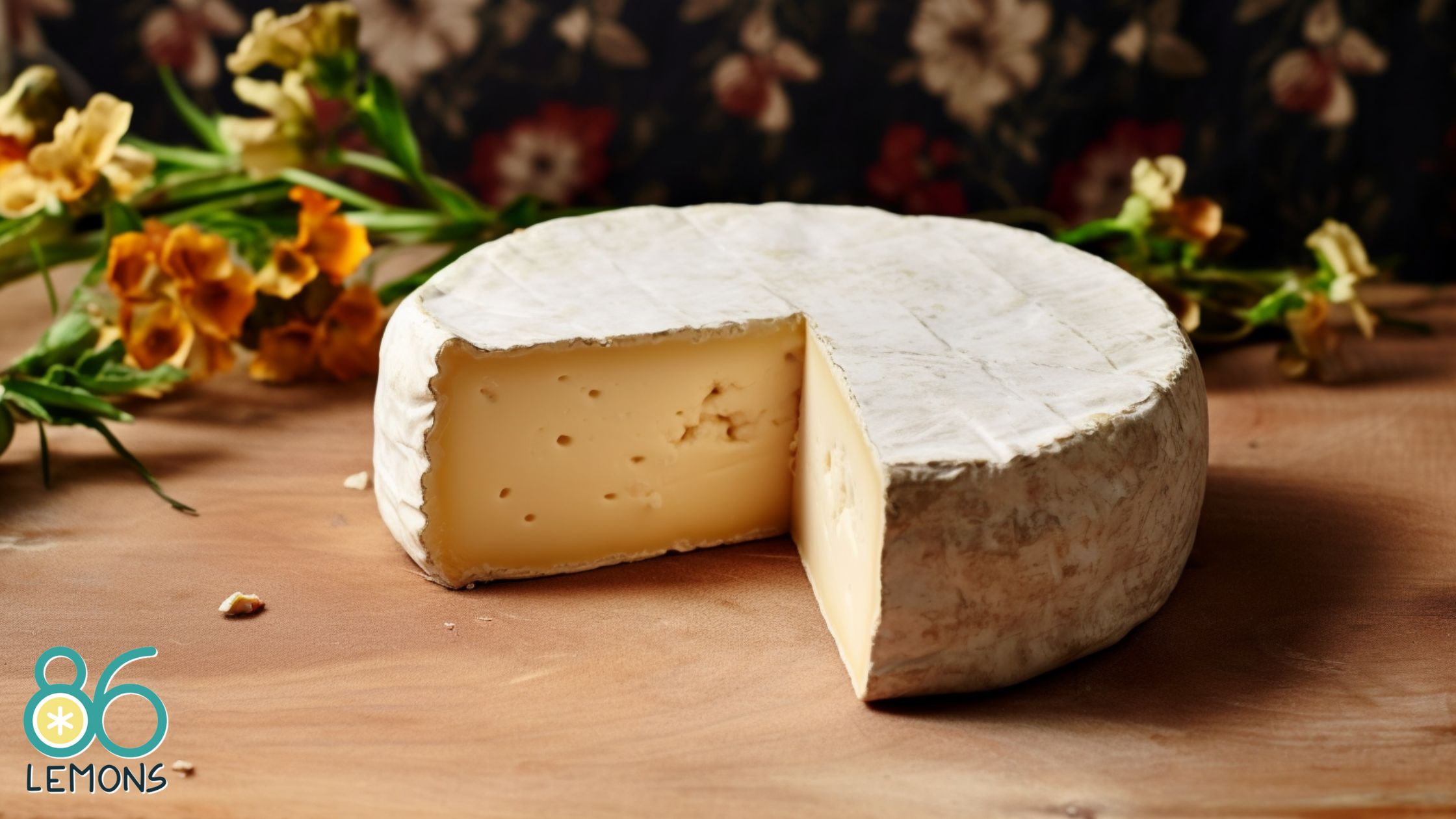Exploring the world of vegan cheese substitutes can be an exciting culinary adventure that goes beyond dietary restrictions. The variety of plant-based cheese alternatives available today means you don’t have to sacrifice the creamy, gooey delights traditional cheese offers.
These vegan substitutes for cheese are crafted from various ingredients like nuts, soy, and root vegetables, providing a spectrum of flavors and textures. From parmesan to vegan cream cheese, the choices are almost endless.
Navigating the ever-growing landscape of vegan cheeses, you’ll discover that the quality of plant-based substitutes has dramatically improved over recent years. With a commitment to ethical eating and technological advancements, finding a vegan cheese that melts, stretches, and gratifies your taste buds is easier than ever.
Whether you’re whipping up a batch of homemade cashew cheese or browsing your local market for the latest brands, vegan cheese complements any dish you create.
Key Takeaways
- Vegan cheese substitutes offer a diverse range of choices for dairy-free diets.
- High-quality vegan cheeses that closely mimic traditional cheese textures and flavors are now available.
- Preparing meals with vegan cheese can be straightforward and enjoyable, contributing to both ethical and health-conscious eating.
Identifying Quality Vegan Cheese Alternatives
In your quest for the perfect vegan cheese, knowing what goes into dairy-free creations and which brands are winning hearts is essential. As you explore, get excited about the variety and the possibilities that await in today’s market!
Understanding Dairy-Free Cheese Ingredients
Dive into the world of dairy-free cheese, and you’ll find your taste buds enthralled by ingredients like creamy cashews, versatile almonds, and tropical coconut. These nuts and fruits lay the foundation for many delicious vegan cheeses.
Plus, the tangy taste often attributed to cheese is ingeniously replicated using nutritional yeast, giving you that savory flavor punch. Experiment with herbs and spices, and get ready to be impressed by their authentic cheesiness!
Popular Vegan Cheese Brands
Your taste buds will be overjoyed with brands like Miyoko’s Creamery, whose artisanal flavors charm cheese aficionados. Let’s not forget the innovative Kite Hill, perfect for those creamy pasta dishes.
For your pizza cravings, Daiya is the best vegan cheese for melting. If you’re into spreading joy, Treeline’s cashew-based spreads are a go-to, and for a cheese that slices, dice, and shreds, Follow Your Heart is a true contender.
Market Insights and Availability
You’ll be thrilled that vegan cheese options are more accessible than ever! Walk into your local grocery store, and you might spot So Delicious shreds or slices perfect for a dairy-free life.
Gourmet selections from Field Roast and Parmela Creamery are making waves in the market, proving you don’t have to sacrifice flavor for ethics. The rise of dairy-free living has ushered in a new era – you can now enjoy vegan cheeses that rival their dairy counterparts in texture and taste!
Homemade Vegan Cheese Creations
You’re about to dive into the delightful world of dairy-free indulgence with homemade vegan cheese creations! Crafting cheese alternatives at home can be simple, and you’ll be amazed at how many incredible, creamy varieties you can whip up in your kitchen.
Basic Recipes for Starters
If you’re new to making vegan cheeses, starting with essential recipes is the way to go. Homemade vegan cream cheese can be made by blending soaked cashews with coconut milk, lemon juice, and a pinch of salt.
Another simple favorite is vegan ricotta cheese, which often uses almonds or tofu as a base, combined with nutritional yeast for that savory B vitamin-enriched depth.
Artisan Cultured Varieties
When you’re ready to elevate your cheese-making game, artisan cultured varieties offer a complex flavor profile that impresses even the most discerning palates.
Culturing vegan cheese involves adding probiotics or rejuvelac to your nut base, letting it ferment, and voilà; you have artisan almond cheese or sharp vegan cheddar. These types of cheese can take a few days to develop but are well worth the wait.
Customizing Flavors and Textures
The beauty of homemade vegan cheese is the freedom to customize flavors and textures. Want something tangy? Add a dash of apple cider vinegar. For a punchier taste, incorporate miso paste or soy sauce.
Textures can be varied by using agar-agar for firmness or potato starch for a gooey melt. Don’t forget to experiment with mix-ins like herbs and spices to create your perfect vegan feta or vegan parmesan.
Remember, creating vegan cheese at home allows you to adapt classic cheese textures and flavors to plant-based versions, ensuring your dishes remain dairy-free!
Cooking and Meal Prep with Vegan Cheese
Vegan cheese can transform your meals with various flavors and textures, making plant-based eating more exciting. Journey through the art of using these dairy-free delights in your cooking routine and elevate your culinary game.
Incorporating Cheese Alternatives into Meals
Vegan cheese is a versatile ingredient that you can incorporate into various dishes. When prepping meals with vegan cheese substitutes, think beyond the traditional cheese uses.
For example, a cashew-based queso can be the star of a raw raspberry cheesecake recipe. You can also sprinkle vegan parmesan over a freshly tossed salad for a nutty, savory finish.
- Pizza: Top your dough with dairy-free mozzarella and your favorite veggies.
- Bagels: Spread vegan cream cheese on your morning bagel and add dill or chives for a flavor boost.
- Pesto: Create a dairy-free pesto using vegan parmesan and enjoy it with pasta or sandwiches.
Always have a blend of spices like garlic powder or nutritional yeast on hand to enhance your recipes’ flavor of vegan cheese. Incorporating nut milk, such as soy milk brands or cashew cream, will also lend a rich texture to your homemade cheesy sauces.
Vegan Cheese in Professional Cuisine
Chefs in professional kitchens have embraced vegan cheese to cater to the growing demand for plant-based options. They often use it to craft gourmet dishes catering to various dietary needs while delivering robust flavors.
You can bring that professional flair into your home cooking by experimenting with store-bought vegan cheese, such as shredded cheese or cheese slices, or crafting your own with ingredients like tapioca starch and hummus.
Nutritional and Ethical Considerations

You’re not just choosing a dairy-free option when you switch to vegan cheese alternatives. You’re embracing products that can be rich in B vitamins, provide health benefits, and support ethical practices that benefit animal welfare and environmental sustainability.
Health Benefits of Plant-Based Cheeses
Plant-based cheeses are often made from nuts, soy, and other healthful ingredients, providing various nutritional benefits. Many vegan cheeses are fortified with B vitamins and nutritional yeast, a complete protein containing all nine essential amino acids.
Cashew cream and other nut-based cheeses are naturally rich in healthy fats and can be part of a well-rounded plant-based diet. Here’s what you might find in vegan cheese substitutes:
- Vitamins: Fortified with B12 and other essential nutrients.
- Protein: Soy and nut-based options can be good protein sources.
- Fats: Fats often contain less saturated fat than dairy cheese.
Supporting Animal Welfare and Sustainability
You’re taking a stand for animal welfare by opting for vegan cheese alternatives. Dairy-free means no animals are involved, so you reduce demand for animal products indirectly.
Moreover, plant-based choices contribute to sustainability efforts. Producing vegan cheese often requires less water and lowers greenhouse gas emissions than dairy cheese production.
Incorporating vegan cheese substitutes from diverse sources like grains and vegetable oils can significantly lower your ecological footprint and support your journey to a more compassionate lifestyle. When you explore the aisles of your local store-bought vegan sections, you’re not just picking up healthy food but becoming part of a movement that values ethical eating and a sustainable planet.


